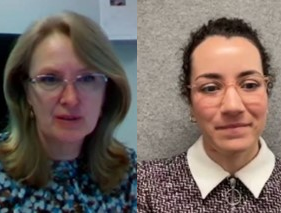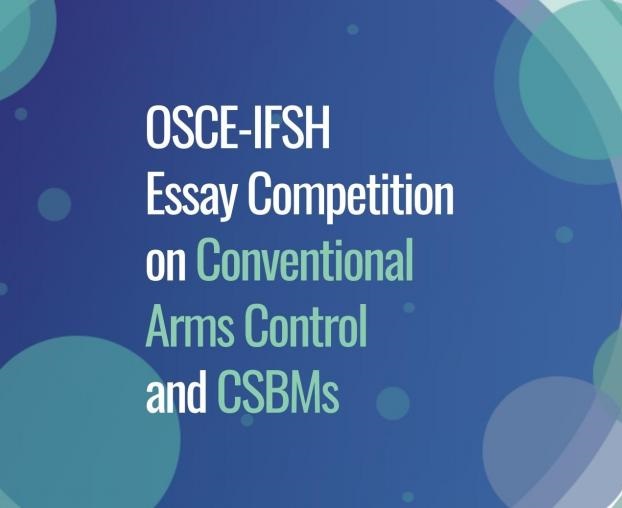
On 16 March 2023, as part of the Young Women and Next Generation Initiative (YWNGI), the Vienna Center for Disarmament and Non-Proliferation (VCDNP) and the International Affairs Institute (IAI), with the support of the EU Non-Proliferation and Disarmament Consortium, organized a public webinar focused on the nexus between artificial intelligence (AI) and the nuclear field, as well as the role for the private sector in developing standards and norms for AI. The event also provided tips and advice for career opportunities in this domain.
The webinar, particularly intended for students and young specialists, featured remarks from Marina Favaro, Senior Policy Analyst at Anthropic. In this webinar Marina Favaro spoke in her personal capacity.
The event was opened and moderated by Elena Sokova, Executive Director at the Vienna Center for Disarmament and Non-Proliferation (VCDNP). It was attended by over 100 participants from different parts of the world.
In her opening remarks, Elena Sokova gave an overview of the purpose and the scope of the YWNGI, highlighting in particular how, through the organization of workshops, public webinars, and a mentoring programme for young women, the Initiative advances the efforts of the EUNPD Consortium in engaging the next generation in non-proliferation, disarmament and arms control discussions. Before giving the floor to the speaker, Elena Sokova underlined that, although AI is already part of our everyday life and of the nuclear policy community discussions, there is still little understanding of the topic.
Marina Favaro spoke about four aspects of AI in the nuclear domain, namely: the relationships between AI and nuclear deterrence; how the integration of AI in nuclear force-related systems could increase or decrease nuclear risks; the possible impact of Large Language Models (LLMs) on the nuclear domain; and the role of private sector in developing standards and norms for AI.
Regarding the relationships between AI and nuclear weapons, and deterrence more broadly, Marina Favaro explained how the use of AI for information operations (such as disinformation) represents the highest technology concerns vis-à-vis nuclear security. The use of AI for information operations includes flooding or shifting information impacting on individuals in the nuclear command chain.
As regards the integration of AI into nuclear force-related systems, she illustrated how it can be both a stabilising and destabilizing element. As a destabilizing element, AI could be used, for instance, to undermine mutual vulnerability through data (e.g. locations and types of nuclear weapons), compromising second-strike ability. The emergence of digitalization threats was also mentioned, such as data poisoning, misinterpretation of data and automation bias. The speaker also illustrated how AI can positively impact stability and help reduce nuclear risks. For instance, intelligence and diplomacy represent a field that can benefit from AI, through monitoring and managing information from large platforms and sources, identifying areas of commonalities and help communicating more empathetically. Regarding the possible impact of LLMs on the nuclear domain, she listed some major concerns, which include the ability of collecting non-confidential information in a meaningful way to create highly classified ones, to the capacity of fragmenting reality. On the other hand, LLMs have also great capabilities, whose accuracy needs to be improved and there are great incentives in this direction.
Marina Favaro concluded her intervention by discussing the role of the private sector and the gap between technical expertise and policy makers. Despite the limited resources for academia to access cutting-edge technology, she also underlined that there are significant efforts ongoing for the two communities to work more closely on this domain.

The discussion was followed by a Q&A session, which covered a wide spectrum of topics, ranging from the role of private sector in influencing government, to prevention of malicious use of AI. Time was also dedicated to a conversation on opportunities for the younger generation in the artificial intelligence field. The speaker highlighted how, in this realm, the private sector tends to offer more tangible and hands-on opportunities than academia.




By continuing to use the site, you agree to the use of cookies. more information
The cookie settings on this website are set to "allow cookies" to give you the best browsing experience possible. If you continue to use this website without changing your cookie settings or you click "Accept" below then you are consenting to this.